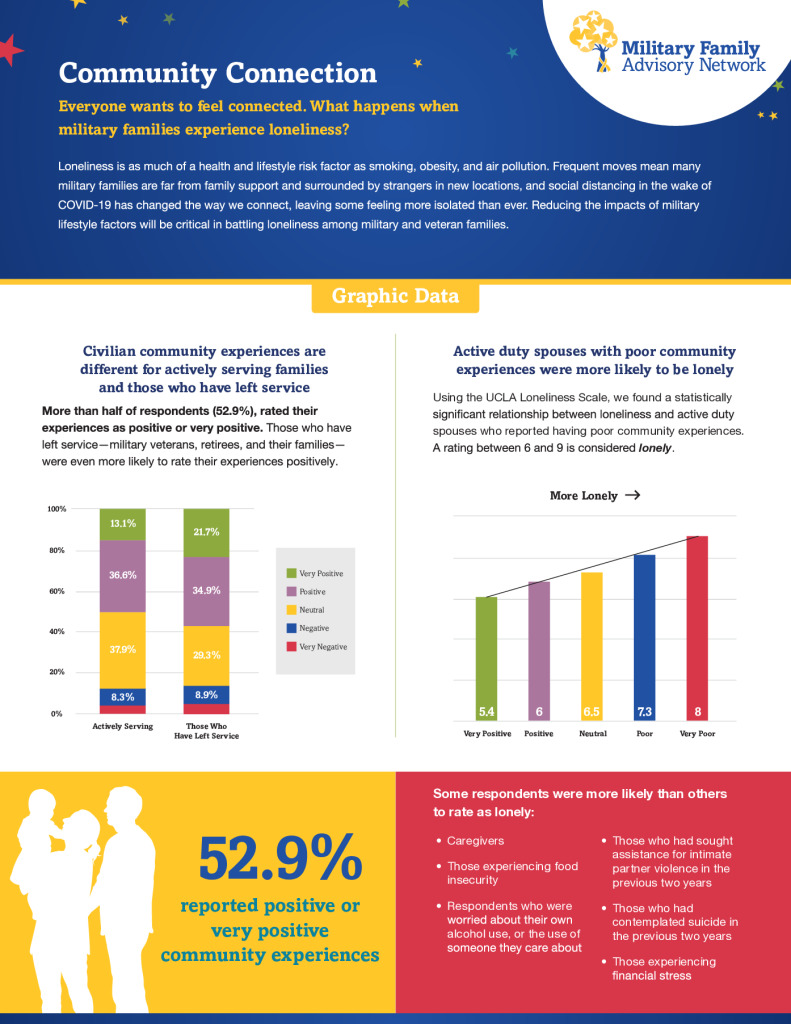Active-duty families on average move every 24 to 36 months, often to communities where they have few social connections. Frequent moves place many military families far from their relatives and the support they provide. This leaves many of these families feeling completely isolated.
According to MFAN’s 2019 Military Family Support Programming Survey, the following people are more likely to experience loneliness:
- Caregivers.
- Those experiencing food insecurity.
- Those who worry about their own alcohol use or the alcohol use of someone they care about.
- Those who have sought assistance for intimate partner violence in the previous two years.
- Those who have contemplated suicide in the previous two years.
- Those experiencing financial stress.
Reducing the effects of these frequent moves — a key military lifestyle factor — is critical in battling loneliness among military and veteran families.
Community Connection
Everyone wants to feel connected.
For military and veteran families, being part of a community is essential; however, active-duty military families often lack the community contacts and support that make their lives easier and more fulfilling.
According to MFAN’s 2019 Military Family Support Programming Survey, spouses of active-duty member respondents who reported their civilian community experience as “poor” had higher levels of loneliness than did respondents who reported positively about their civilian community experiences.
Community Connection
Everyone wants to feel connected. What happens when military families experience loneliness?
